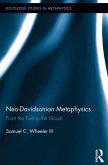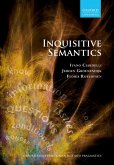This book uses mathematical models of language to explain why there are certain gaps in language: things that we might expect to be able to say but can't. For instance, why can we say I ran for five minutes but not *I ran all the way to the store for five minutes? Why is five pounds of books acceptable, but *five pounds of book not acceptable? What prevents us from saying *sixty degrees of water to express the temperature of the water in a swimming pool when sixty inches of water can express its depth? And why can we not say *all the ants in my kitchen are numerous? The constraints on these constructions involve concepts that are generally studied separately: aspect, plural and mass reference, measurement, and distributivity. In this book, Lucas Champollion provides a unified perspective on these domains, connects them formally within the framework of algebraic semantics and mereology, and uses this connection to transfer insights across unrelated bodies of literature and formulate a single constraint that explains each of the judgments above.
Dieser Download kann aus rechtlichen Gründen nur mit Rechnungsadresse in A, B, BG, CY, CZ, D, DK, EW, E, FIN, F, GR, HR, H, IRL, I, LT, L, LR, M, NL, PL, P, R, S, SLO, SK ausgeliefert werden.









